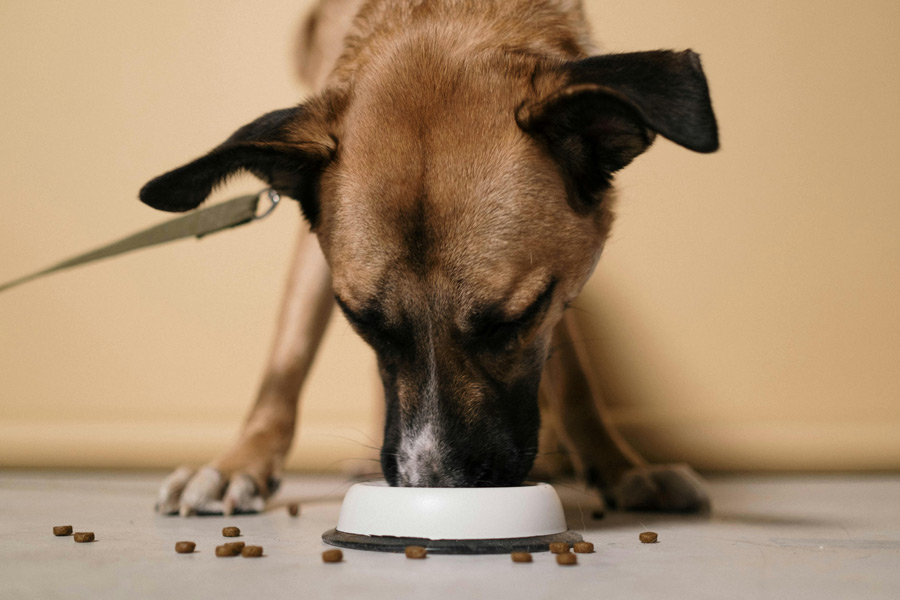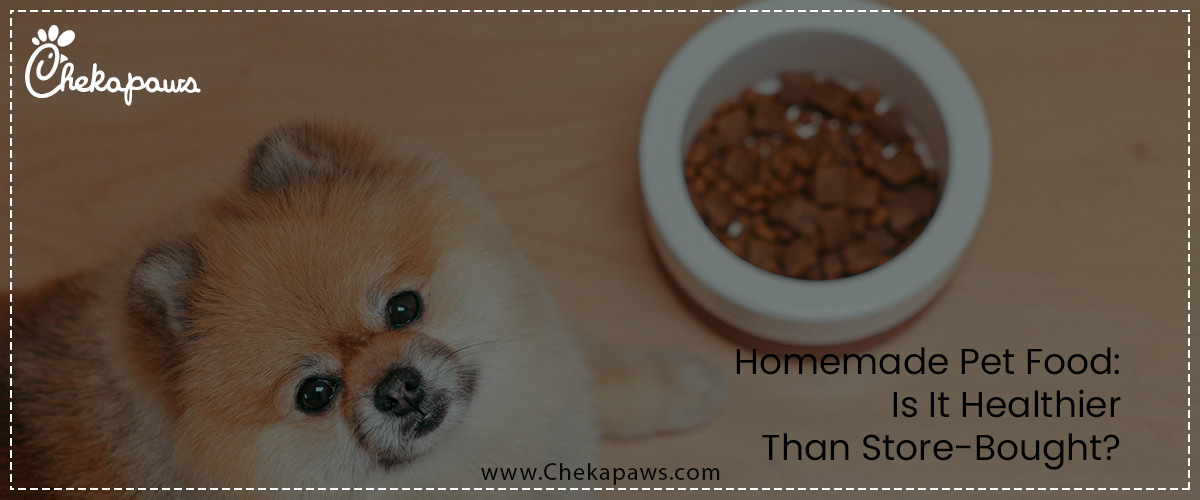We as pet owners are becoming more and more worried about the ingredients in the food that our pets eat. Many of us are considering homemade pet food as a possible substitute for store-bought products as a result of increased understanding about nutrition and health.
Is homemade pet food really healthier than store-bought pet food, though? In this article, I’ll cover the benefits and drawbacks of making our own pet food as opposed to buying it from the store, as well as safety issues, nutritional factors and professional perspectives.
Table of Contents

Appeal of Homemade Pet Food
We, as pet owners, can have complete control over what our pets eat by making our own pet food. Some benefits include:
- Transparency of ingredients: We can make sure our pets are consuming only the best, freshest ingredients free of artificial additives and fillers.
- Customization: Recipes can be modified according to our pet’s particular dietary requirements, allergies or medical issues.
- Preventing Recalls: Homemade food is a good substitute for pet food as certain brands have experienced recalls because of contamination or incorrect labelling.
- Perceived Health Benefits: As per the experience of various pet owners including me, eating fresh, home-cooked food improves digestion, energy levels and coat health.
Convenience of Store-Bought Pet Food
Commercial pet food was created with convenience and balanced nutrition in mind. Some of the benefits are:
- Nutritional Balance: A lot of commercial pet foods are made in accordance with recognized standards (AAFCO, FEDIAF) to satisfy the unique nutritional requirements of our pets.
- Easy to Use: Store-bought pet food is easy to use because it doesn’t need to be prepared, saving time and effort.
- Extended Shelf Life: Foods in cans and dry kibble have a longer shelf life and are less likely to deteriorate.
Nutritional Considerations: Is Homemade Healthier?
For our pets to be healthy, their diet must be well-balanced. The most important things to think about are:
Protein and Amino Acids
Important for the development and maintenance of bones. Among the many important amino acids required in the diets of dogs and cats are leucine and lysine. Proteins are made up of amino acids, and protein synthesis occurs when each required amino acid is not present in sufficient amounts.
To get rid of viruses, meat sources should be of the highest finest quality and cooked correctly.
Fats and Fatty Acids
Provide your pets energy and promote the health of their skin and coat.
The balance of omega-3 to omega-6 is important for their nutrition.
Carbohydrates and Fiber
Although carbohydrates provide you energy, your pets don’t need to consume plenty of carbohydrates.
Fibre helps with digestion, and is important for your pets’ gut health.
Vitamins and Minerals
Pets need to get the proper amounts of essential nutrients.
Important minerals like taurine, phosphate, and calcium are frequently absent from homemade meals.
Common Mistakes in Homemade Pet Diets
Nutrient Deficiencies: A lot of home-cooked meals are deficient in vital nutrients, which can cause chronic health problems.
Inappropriate Ratios: Obesity and malnutrition can be caused by unbalanced diets.
Toxic Ingredients: Pets cannot eat certain human foods, such as grapes, chocolate, onions, and garlic.
Factors
- Make Your Own Pet Food
- Pet food purchased from stores
- Balance in Nutrition demands meticulous preparation
- Time-consuming
- Simple to serve
- The price can be costly.
- More reasonably priced
- Safety of Food
- Contamination risk
- Tightly controlled
- Personalization
- Completely adaptable
- Problems with hygiene and storage: Improper storage of fresh food can cause it to spoil rapidly.
The Role of Veterinarians and Pet Nutritionists
A Nutritional Comparison between Homemade and Store-Bought Products
- Before considering the switch to homemade foods, experts frequently advise speaking with a veterinarian or pet nutritionist. Among the important factors are:
- Customised Recipes: Veterinary nutritionists are able to create well-balanced meals that are suited to the particular requirements of each pet.
- Supplements: To guarantee comprehensive nutrition, some supplements can be necessary.
- Frequent Monitoring: Early detection of any inadequacies or health issues can be facilitated by routine veterinary examinations.
When is Homemade Pet Food a Good Option?
Homemade pet food may be beneficial in specific cases, such as:
- Pets with Allergies: If a pet has an allergy to a common ingredient in commercial pet food.
- Medical Conditions: Pets with diabetes, kidney disease, or other conditions requiring special diets.
- Owners Who Can Commit: Pet owners who have the time, expertise, and resources to prepare meals that are nutritionally balanced.
In what situations is store-bought dog food the better option?
- Busy Lifestyles: Homeowners who lack the time to cook their own meals.
- Senior pets and puppies/kittens are life phases that need exact nutrient balance.
- Commercial food makes feeding schedules easier to handle in large households with several pets.
Conclusion: Finding the Right Balance
A number of factors, such as lifestyle, time commitment, pet health, and cost considerations, influence the choice between handmade and store-bought pet food. Commercial pet food is still a dependable and practical option for many people, even though homemade food can be an excellent substitute when prepared correctly. Regardless of the decision chosen, seeking professional advice is the best way to guarantee that pets receive a healthy, balanced diet. Providing a food that supports a pet’s long-term health and well-being should always come first, whether homemade or store-bought.







